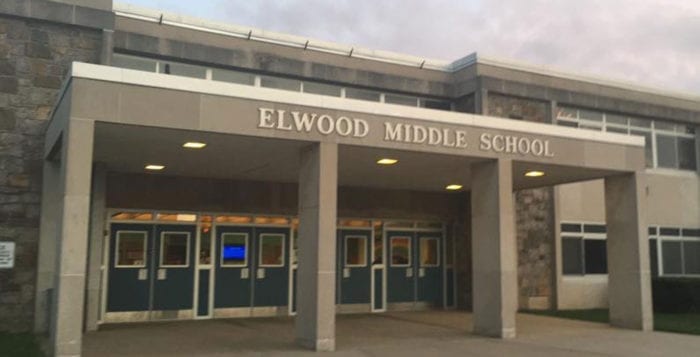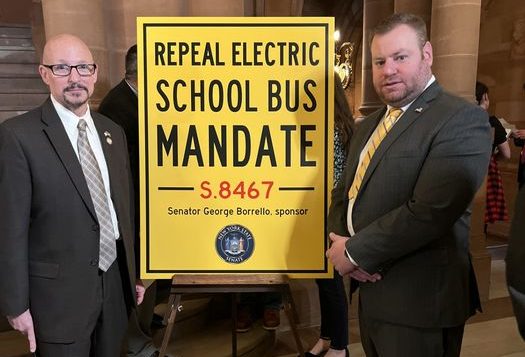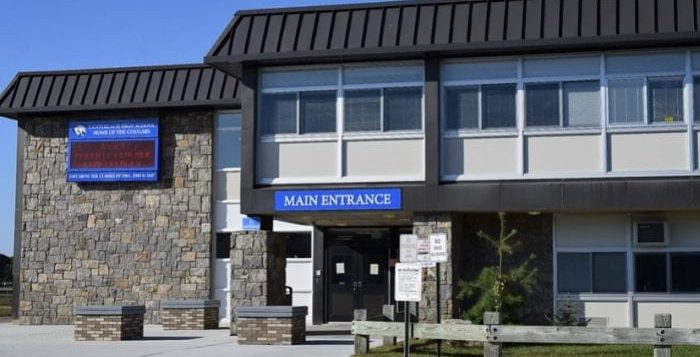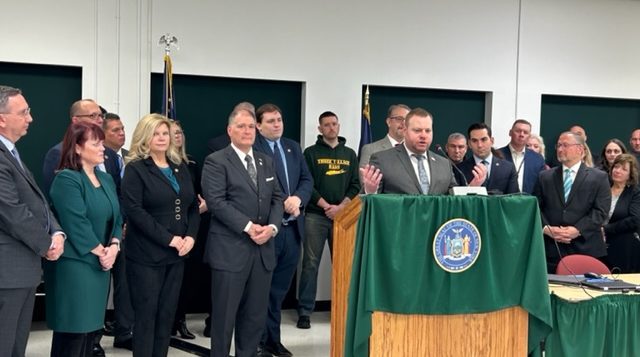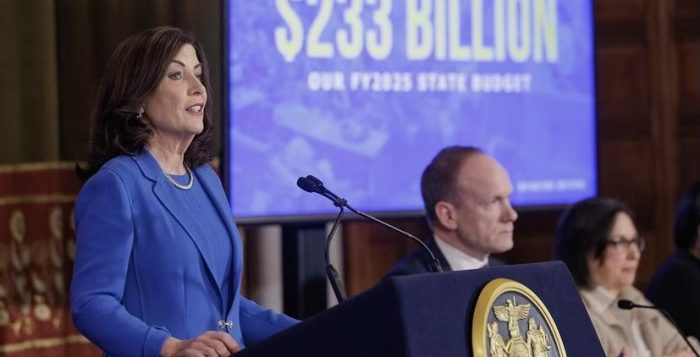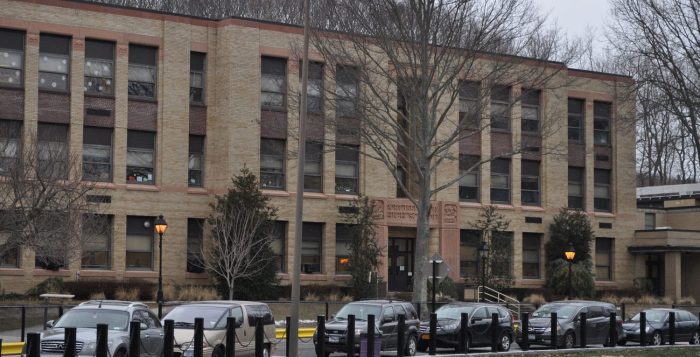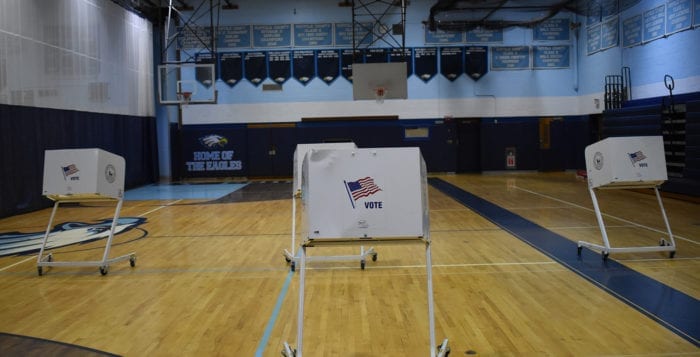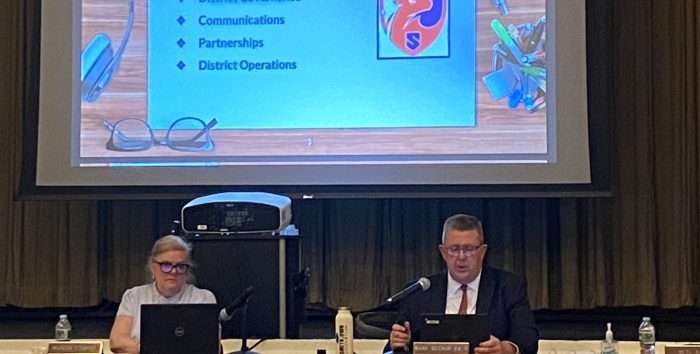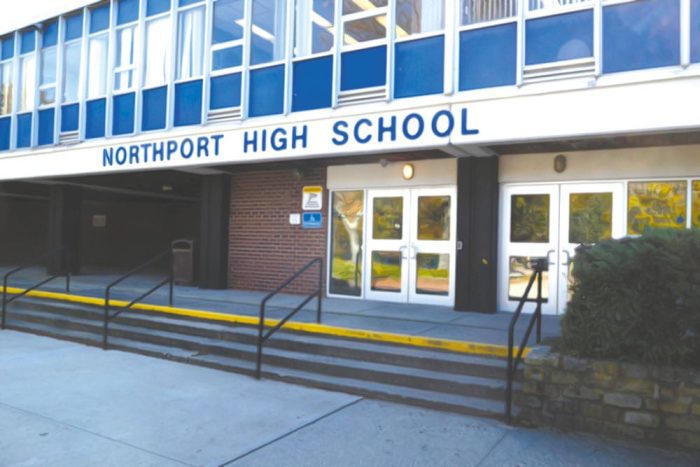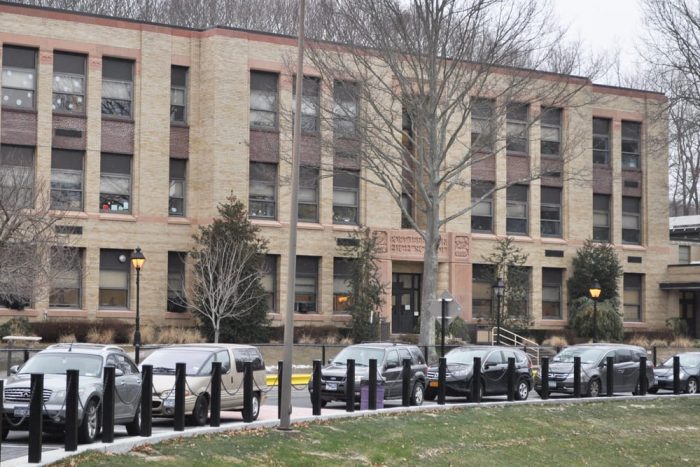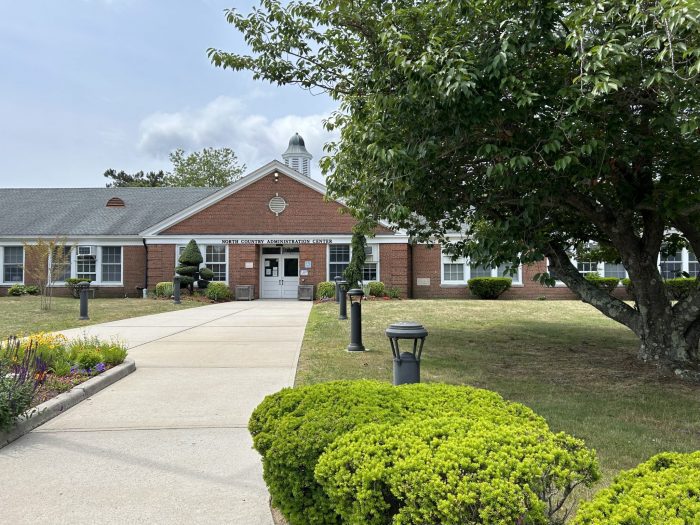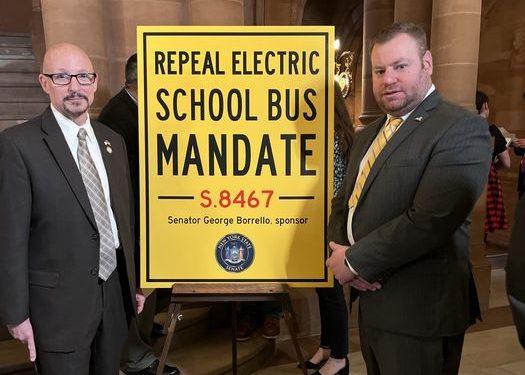The names of board of education candidates who won a seat are marked with an asterisk.
Comsewogue Union Free School District
Budget vote:
Yes: 769
No: 205
Proposition 2 (Reallocation of Capital Funds): (Proposition 2 is a reallocation of previously approved capital funds to update elementary school playgrounds, make drainage and site improvements and replace ceramic wall tile at Norwood Avenue Elementary School. Officials said the projects would not exceed $4 million.)
Yes: 869
No: 94
Board of Education results: (Candidates ran for three at-large seats with the one receiving the fewest votes to serve a one-year term stemming from the 2024 resignation of Alexandra Gordon.)
*Robert DeStefano (Three-Year Term): 757 votes
*Diane Enright (Three-Year Term): 628 votes
*Francisca Alabau (One-Year Term): 552 votes
Port Jefferson School District
Budget Vote:
Yes: 868
No: 290
Proposition 2 (Capital Reserve Fund): Yes: 857 • No: 299
Board of Education results: At large vote for two open seats
*Randi DeWitt-738 votes *Ellen Boehm-718 votes ∙ Jennie Berges-437 votes
Middle Country Central School District
Budget Vote:
Yes – 1,511
No – 568
Board of Education results: Three open seats
*Dawn Sharrock- 1,465 votes
*Robert Feeney- 1,453 votes
*Robert Hallock- 1,421 votes
Three Village Central School District:
Budget:
Yes – 1852
No – 1110
Board of Education Election:
Two open seats, elected at-large.
*Amitava Das – 1957 votes
*Dr. Stanley Bak – 2116 votes
Miller Place School District
Budget vote:
Yes: 539 • No: 217
Proposition 2 (Library Budget):
Yes: 649 • No: 101
Board of Education elected trustees: (Candidates ran for two at-large seats)
*Andrea Spaniolas – 521 votes
*Jennier Keller – 491 votes
Rocky Point School District
Budget Vote
Yes: 482
No: 143
Proposition 2:
Capital Reserve Fund
Yes: 491
No: 124
Board of Education elected trustee:
*Susan Sullivan– 524 votes
Mount Sinai School District
Budget Vote
693 Yes
207 No
Proposition 2: Library
782 Yes
115 No
Proposition 3: Capital Project
739 Yes
157 No
Board of Education elected trustees:
*John Hnat- 565 votes
*Anthony Mangione- 616 votes
Shoreham-Wading River Central School District
Budget vote:
Yes–513
No–145
Proposition 2:
Yes–513
No–142
Proposition 3:
Yes–498
No–158
Board of Education elected trustees:
*Meghan Tepfenhardt: 527 votes
*Thomas Sheridan: 534 votes
Commack Union Free School District
Budget vote:
Yes: 1330
No: 546
Board of Education results :
(two seats)
Seat 1:
Pricilla Warner- 369 votes
*Nicole Goldstein- 1298 votes
Seat 2:
*Gues Hueber- 1511 votes
Kings Park Central School District
Budget vote:
Yes: 736
No: 403
Board of Education results:
(two seats)
*Pat Hanley- 841votes
*Shala Pascucci- 745 votes
Smithtown Central School District
Budget vote:
Yes: 4,222
No: 1,921
Board of Education results:
For the seat of Michael Saidens:
Karen Wontrobski-Ricciardi 2,531 votes
*Theresa Donohue-3,573 votes
For the seat of John Savoretti:
Mike Simonelli- 2,613 votes
*Brandon Solomon- 3,445 votes
For the seat of Michael Catalanotto:
*Bernadette Ackerman- 3,600 votes
Alfred Carfora – 2,483 votes
Hauppauge School District
Budget Vote:
Yes 597
No 259
Proposition: Energy Performance Contract
Yes 667
No 174
Board of Education results:
(3 Open Seats, Three Year Terms)
*David M. Barshay, Esq.- 595 votes
*Rob Scarito- 612 votes
*Michael Buscarino- 601 votes
Northport–East Northport Union Free School District
Budget Vote:
Yes – 2,085
No – 1,149
Board of Education results:
(Three open seats)
*Christine Ruggeri– 2,332 votes
Thomas Loughran- 1,018 votes
Joseph Pushee– 882 votes
*Jim Maloney- 2,084 votes
*Raymond Burney- 1,823 votes
Proposition #2:
Capital Expenditures
Yes – 2,490
No – 733
Proposition #3:
Energy Performance Contract
Yes – 2,327
No – 894
Proposition #4:
Northport Historical Society
Yes – 1,799
No – 1,410
Huntington Union Free School District
Budget Vote:
Yes – 789
No – 200
Proposition:
Building improvement fund
Yes – 835
No – 146
Board of Education results:
(Two open seats)
*Jon Weston- 788 votes
*Jenna Prada- 768 votes
Harborfields Central School District
Budget Vote:
Yes- 817
No – 165
Board of Education results:
(Two open seats)
*Jeanette Wojcik- 775 votes
*Becky Dorsogna- 738 votes
Cold Spring Harbor Central School District:
Budget vote:
Yes – 245
No – 49
Board of Education results: (two seats open)
*Bruce Sullivan – 210 votes
*Alex Whelehan – 233 votes
(Both ran uncontested)

